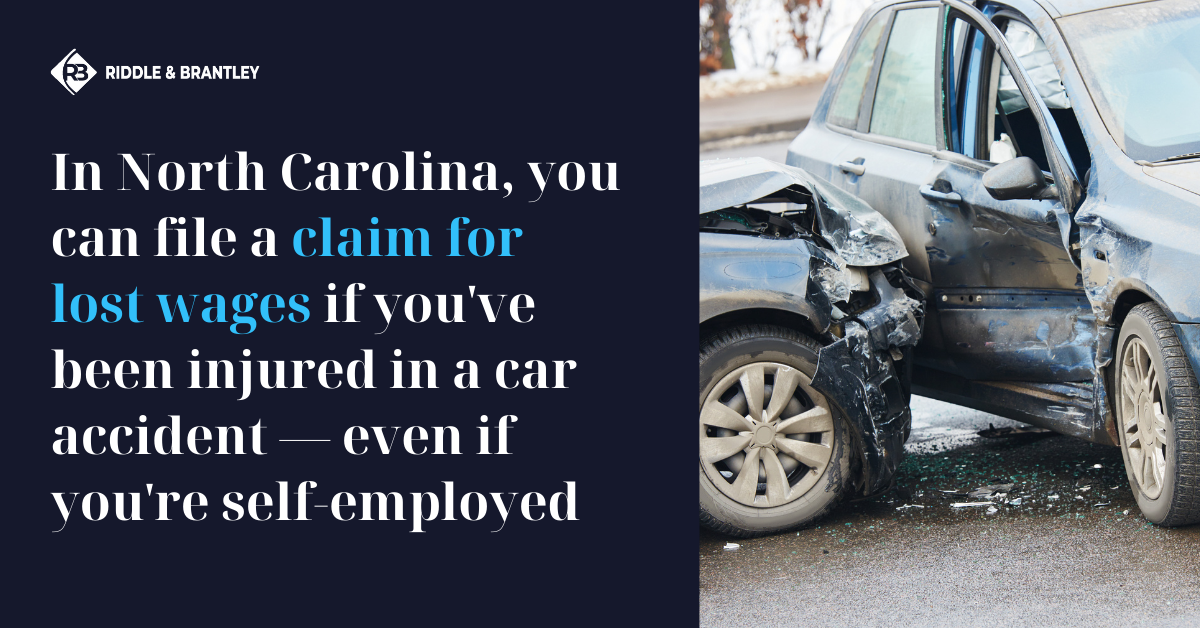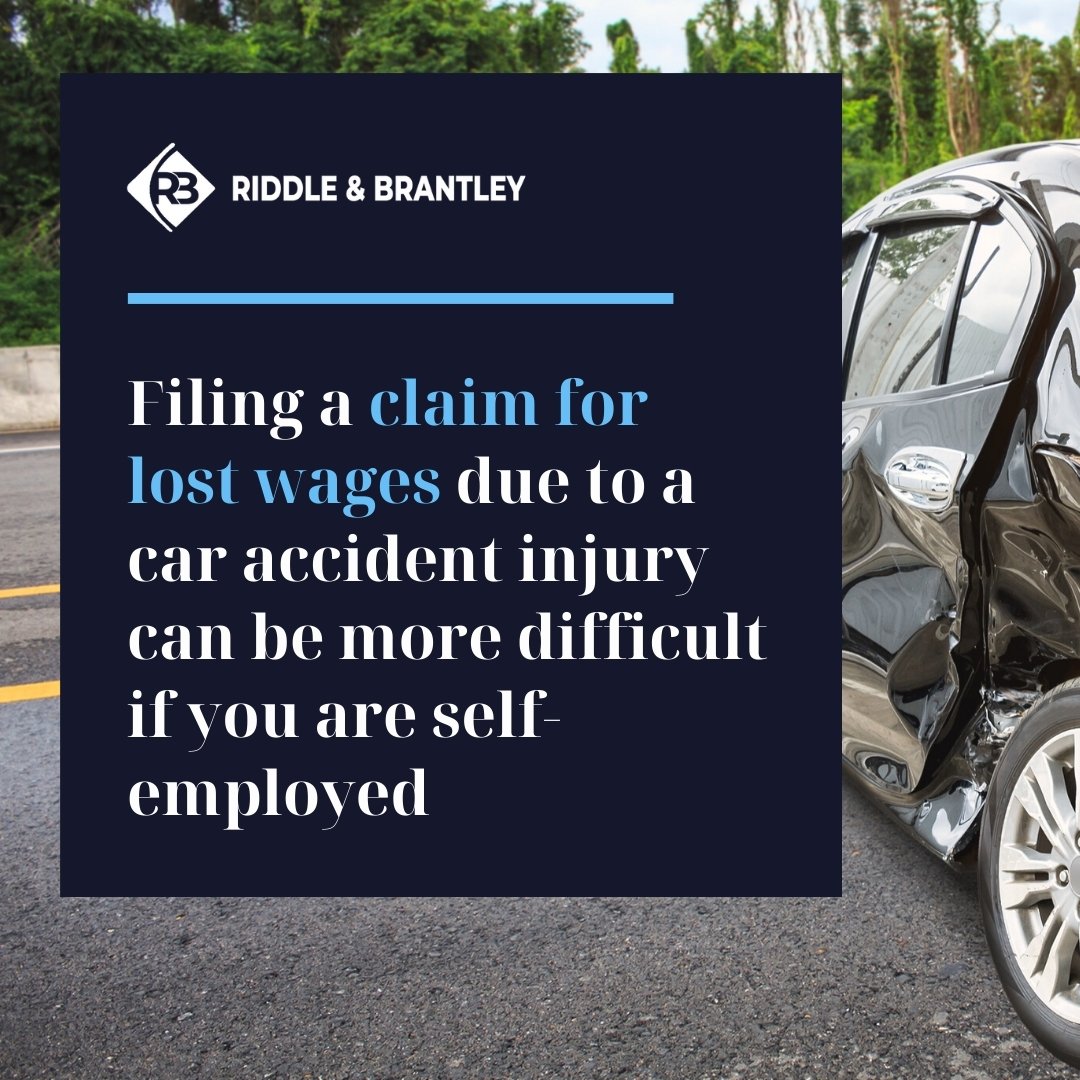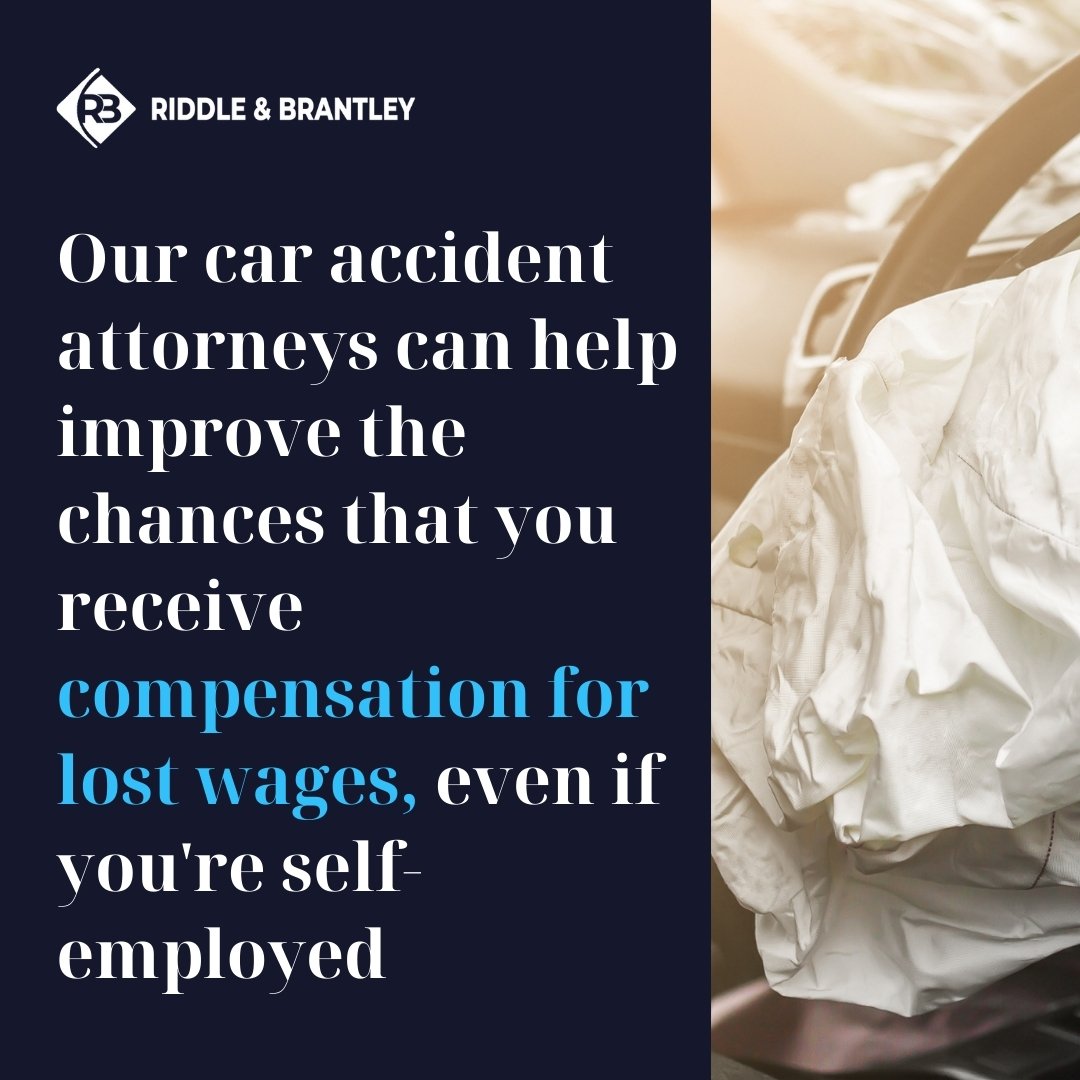In many cases, you may be able to claim lost wages when you’ve been injured in a car accident. However, the process is somewhat different for those who work for themselves. You may be wondering, “Can I claim lost wages after a car accident if I’m self-employed?”
The short answer is yes, but it can be complicated. In this article, we’ll discuss how you can claim lost wages after a car accident if you’re self-employed. We’ll also share why it’s important to talk with an experienced car accident attorney to protect your rights.
Claiming Lost Wages After a Car Accident

The aftermath of a car accident can be financially burdensome. In addition to having to grapple with expensive medical bills, you may be unable to work as a result — or have to miss work for treatment. A car accident injury may mean losing out on some or all of the income that you and your loved ones rely on.
In North Carolina, you can claim lost wages as part of your car accident injury claim. Depending on your situation, this compensation can be as important as compensation for your injuries.
There are three types of claims you can make if you’re forced to miss work (or lose work) as a result of your car accident injury:
- Lost wages — In North Carolina, a claim for lost wages is typically measured by the amount of work you were forced to miss as a result of your injuries, and how much money you would have otherwise earned. If you lost your job as a result of the accident and were forced to take a lesser paying position, you may even be able to claim the difference.
- Loss of earning capacity — If your injury resulted in long-term consequences that will diminish your earning potential in the future, you may also be able to claim loss of earning capacity. In general, you must satisfy two criteria in making a loss of earning capacity claim: 1) you suffered personal injury; and 2) the injury affects your work ability.
- Lost opportunities — If your car accident injury forced you to lose an opportunity, you can also file a lost opportunity claim. These claims can be very difficult to prove, but in general you will need to provide documentation that you received an income opportunity, but that due to the injury, the opportunity was lost. These claims are more common for those who are self-employed.
Claiming Lost Wages When You’re Self-Employed
If you’re an entrepreneur or small business owner and you work for yourself, it can be more difficult to file a lost wages, loss of earning capacity, or lost opportunities claim after a car accident injury.

However, claiming lost wages is possible when you’re self-employed, and an experienced car accident lawyer can help you collect all necessary evidence and documentation to strengthen your claim.
Documenting Lost Wages and Loss of Earning Capacity
Because you work for yourself, proving that you lost income or potential income as a result of your injury is more complicated than simply going to an employer and asking for employment records.
In order to file a claim for lost wages as a self-employed entrepreneur or small business owner, you’ll most likely need to provide tax records, financial reports, and other business statements to the insurance company. You may also need to provide lost contracts or invoices, as well as work schedules and even testimonials from customers.
Documenting Lost Opportunities
Lost opportunity claims can be even more difficult for self-employed car accident injury victims. Insurance companies often view these claims very skeptically.
In these cases, you’ll likely need to provide strong evidence showing that “but for” your car accident injury, you would have been hired for the work.
The strongest evidence would likely be the testimony of a potential customer stating that they intended to hire you prior to your injury. At a minimum, however, you will likely need to provide all relevant correspondence with the potential customer in order to help support your claim.
“So… can I claim lost wages if I’m self-employed and have been injured in a car accident?”
The short answer is yes, you can claim lost wages if you’re self-employed and have been injured in a car accident in North Carolina. However, these claims can be more difficult because you work for yourself and don’t have the luxury of simply requesting documentation and evidence from an “employer.”
An experienced North Carolina car accident lawyer at Riddle & Brantley can help you make a lost wages claim if you’re self-employed. We can also help you file claims for loss of earning capacity and lost opportunities.
We serve clients throughout North Carolina, including in:
- Raleigh
- Durham
- Greensboro
- Winston-Salem
- Asheville
- Charlotte
- Fayetteville
- Goldsboro
- Greenville
- Jacksonville
- Wilmington

With more than 220+ years of combined legal experience, our North Carolina auto accident attorneys have secured millions of dollars in compensation for our deserving clients (see disclaimer below), and we'd love to help you if we can.
The consultation is free and you won’t pay any attorney fees unless we win your case and you receive compensation.
"Riddle & Brantley found me all the available money from the insurance companies."
-David Howard, Riddle & Brantley client
Justice Counts for those injured in North Carolina auto accidents and we would love to help you get justice and compensation if we can, including compensation for lost wages, loss of earning capacity, and lost opportunities if you’re self-employed.
*** Disclaimer: The results mentioned are intended to illustrate the type of cases handled by the firm. These results do not guarantee a similar outcome, and they should not be construed to constitute a promise or guarantee of a particular result in any particular case. Every case is different, and the outcome of any case depends upon a variety of factors unique to that case.